A couple of months ago, I wrote an article on the plight of bees, and one of the questions I asked was what people in metropolitan areas such as London could do to promote this cause, so following a chat with our Editor-in-Chief, we decided to do a follow-up piece focusing on urban and corporate beekeeping initiatives.
The movement of urban beekeepers in the UK has gained significant momentum in recent years, fostering a buzzing network of passionate individuals and corporate entities who are committed to the wellbeing of honeybees amidst the concrete jungle. With dwindling natural habitats and neonicotinoid pesticides used in farming, urban beekeepers have taken it upon themselves to create sustainable environments for these vital pollinators. Rooftop gardens, community allotments and even small balconies have become havens for bees, transforming the cityscape into vibrant sanctuaries, raising awareness about their importance in maintaining a balanced ecosystem and inspiring others to join the cause. The UK’s urban beekeeping movement exemplifies the harmonious coexistence between nature and urban living.
Below are three examples of initiatives by corporate entities to protect and ensure the future of bees.
Heddon House, Regent Street, London
Situated on the rooftop of Heddon House, with incredible views across London, this bustling shopping area on Regent Street is the last place you would expect to find a beehive. I was privileged to be invited by The Crown Estate to meet with Dale McCann – the passionate guardian of 100,000 bees – and have the rare opportunity to get up close and personal with his beehives.
Dale started out as The Crown Estate’s pest controller, and when propositioned with the idea of installing hives on the roof, he was surprised but also pleased, as his mother used to keep bees back in his home country of Ireland. In order to prepare for the initiative, Dale and his business partner Rob used to visit Hertfordshire to “hang out with bees” and learn the necessary skills to facilitate a happy environment.
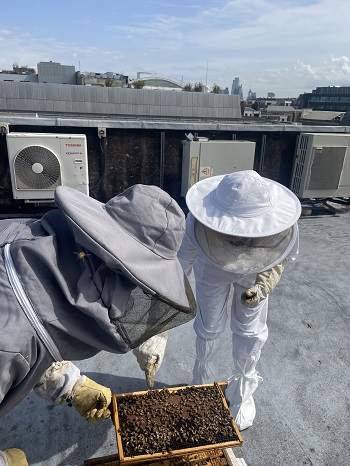
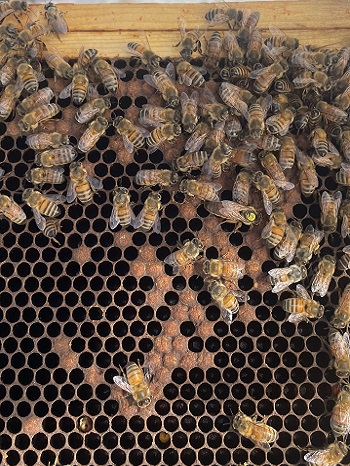
Left, Dale McCann introduces our Assistant Editor, Shelley Campbell to the residents of Heddon House’s rooftop. Right, a close up showing the Queen Bee (double the size of the workers, with a yellow dot on her back).
As we were suiting up, Dale mentioned that they had recently harvested honey, so the bees might not be as hospitable as they normally are, but to me that was not a deterrent; I was more than ready for the experience. Thankfully, they were pretty chilled-out. That said, the more we delved deeper into the hive in search of the Queen Bee, the louder the buzz got. I mentioned this to Dale and he said, “This is their way of showing annoyance, but don’t worry, this is nothing.”
Something I didn’t expect was Dale’s concern about oversaturation of honeybees in urban spaces. Apparently, although bees can travel up to three kilometres to source pollen, in order to pollinate plants effectively, we also need other species known as solitary bees. In the UK, we have around 270 species of bees and 250 of these are solitary. An oversaturation of honeybees in urban areas with limited open spaces and pollen resources inhibits the ability for the solitary bees to exist. This is not because honeybees have some sort of superiority complex and will intentionally keep others out – they are in fact a harmonious bunch (unless you’re a wasp) and they welcome diversity and inclusion, but on the proviso that they have enough food to maintain their colony. Rather than increasing the number of hives on rooftops, he suggested installing planters containing brightly coloured flowers with open petals that bees can access easily. Lavender is another great option. More information about this great initiative HERE.
Bentley Extraordinary Bees
Bentley Motors’ historic site in Crewe is already famous for producing the models that have carried its “flying B” emblem on the bonnet for a hundred years, but thanks to a biodiversity initiative that began in 2019 as part of its #GOTOZERO strategy, the company is now creating a buzz with its incorporation of “flying bees” of the insect kind.
On World Bee Day this year (19th May), the Crewe based luxury marque announced the expansion of its Excellence Centre for Honey Production, increasing the colony size of its indigenous honeybees from 600,000 to over a million through the installation of seven new beehives. In a further move, Bentley is encouraging its colleagues to enhance local biodiversity by gifting wildflower seeds for them to plant in their communities.
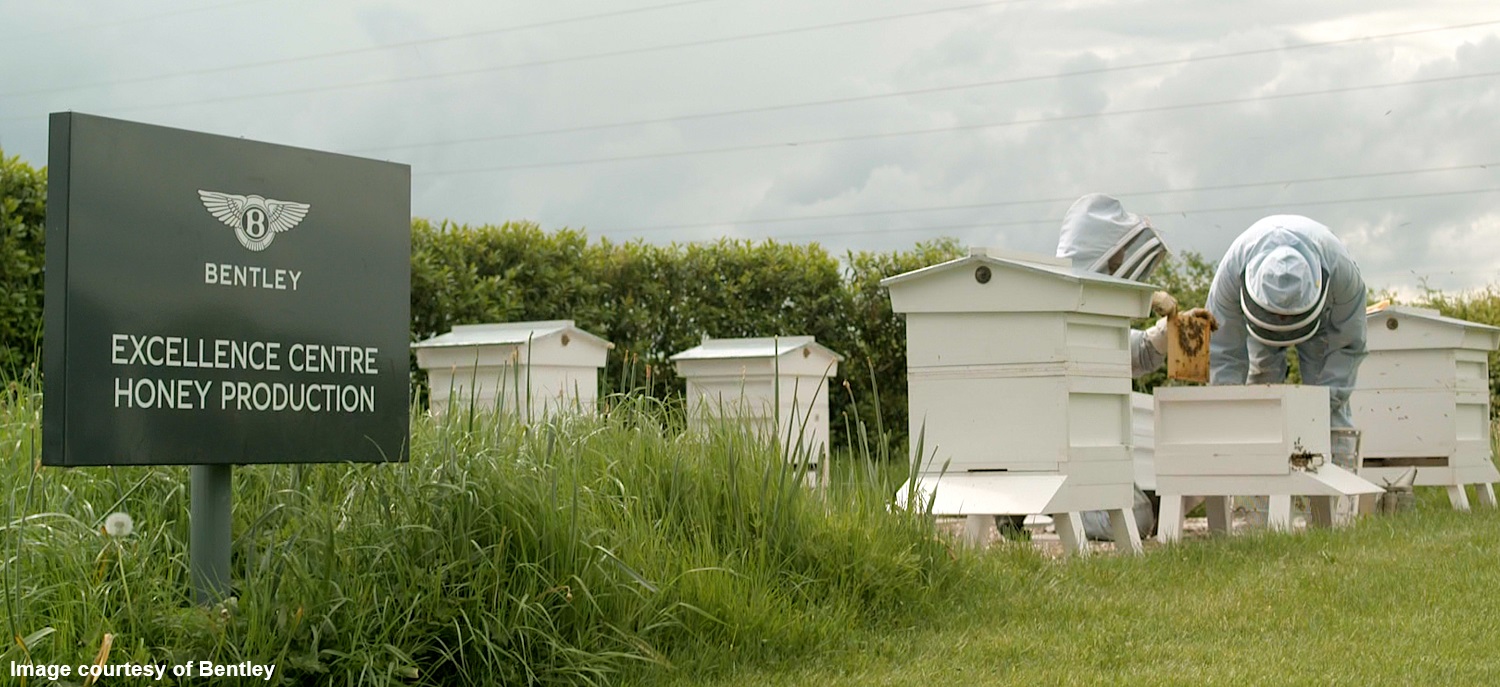
Bentley Beekeepers in action at the recently extended Excellence Centre for Honey Production.
Welcoming the new bees into the Bentley team, Andrew Robertson, Head of Site and Facilities Planning, comments, “Our Bentley Bees have been at our site for almost five years, producing over 2,000 jars of honey for our colleagues and customers. We hope that by installing seven new hives, in addition to the ten already in place at our Excellence Centre for Honey Production, we can further enhance our positive impact on the local environment as part of a wider sustainability programme.” Learn more about Bentley Extraordinary Bees HERE.
“Bee Our Guest” at The Royal Lancaster Hotel, Lancaster Terrace, London, W2 2TY
The idea to install beehives was originally a suggestion from a staff member whose grandfather kept bees, and the hotel became the first lodgings in the capital to put hives on its roof back in 2009. Ever since, slowly but steadily, the family-owned, five-star premises have incorporated the insect into their entire ethos. Complimenting the all-female led in-house restaurant Nipa, the honey that the bees produce by gathering pollen from nearby Hyde Park is used in the hotel’s kitchens and bars.
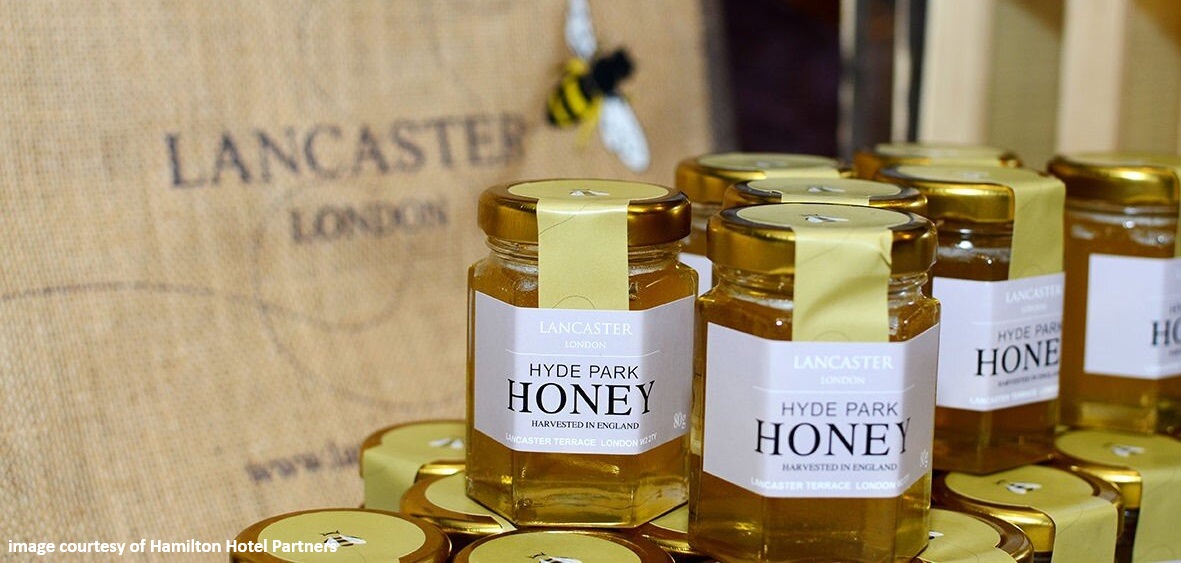
The honey produced on the rooftop of the Royal Lancaster is used in many of their recipes, both for food and for drinks.
Extending the positive reach of their beekeeping activities, The Royal Lancaster has partnered with “Bees Abroad “by twinning their rooftop beehives known as the “Honey Farm” with beehives in Tanzania; a project focused on empowering rural women on Kome Island through beekeeping. Together with local beekeeping trainers and organisations, they educate, guide and mentor communities in local best practices, business creation, protecting the environment, whilst generating income, and making steps towards alleviating poverty.
The Royal Lancaster’s Honey Farm has twinned with beehives in Tanzania as part of their partnership with Bees Abroad to alleviate poverty through different initiatives.
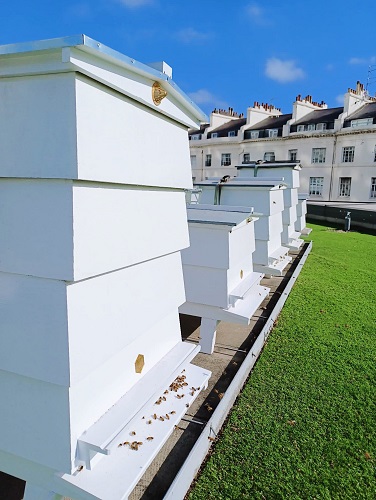
Their “Bee Our Guest” package includes a £10 donation to support Bees Abroad. The overnight stay has guaranteed views of Hyde Park and the rooftop beehives from your room, a delicious “Royal Bumblebee” honey cocktail in a homemade beeswax glass at the Park Lounge Bar, and an indulgent breakfast which includes the Royal Lancaster’s delicious fresh honeycomb to drizzle on your granola or toast. Book your stay HERE.
These are only three of the many examples across our nation of corporate conservation initiatives to secure the survival and thriving of bees, insects vital to the future of our planet. We are delighted that companies up and down the UK are investing in it. This is a cause close to the heats of all of us at I-M Intelligent Magazine so we encourage you all to get involved in whatever way possible.
Words: Shelley Campbell
Opening Image: Bentley Extraordinary Bees, courtesy of Bentley.





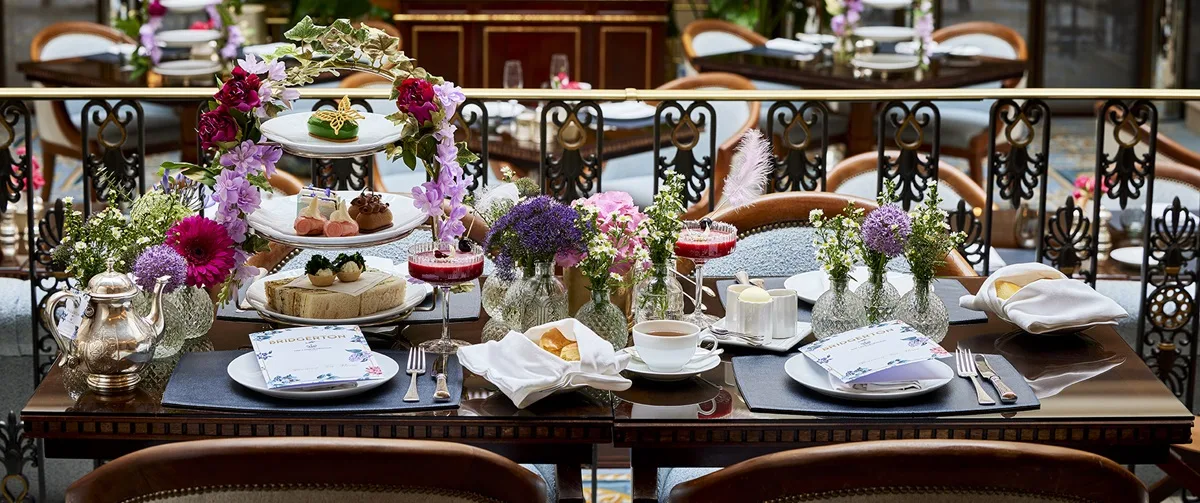

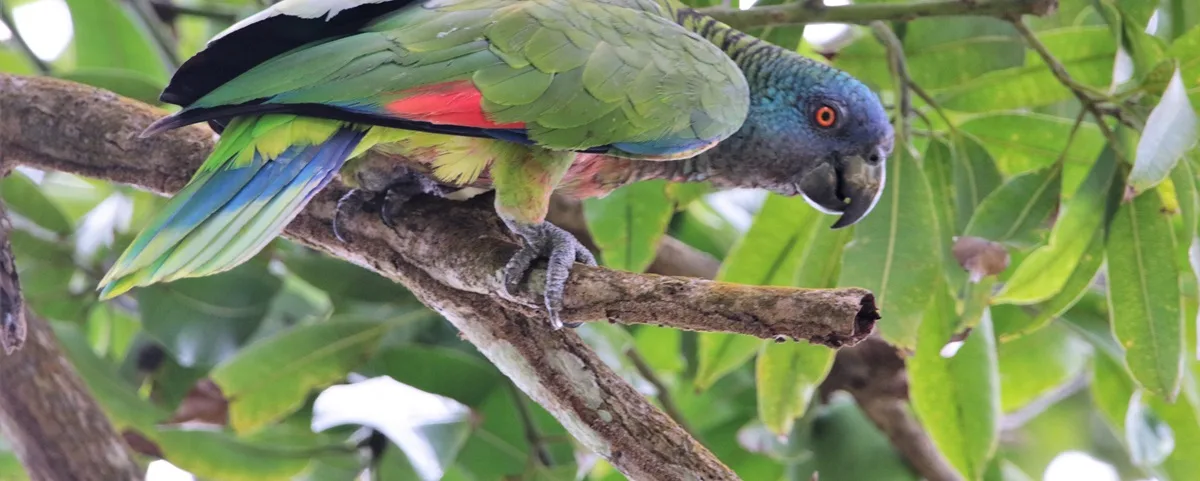




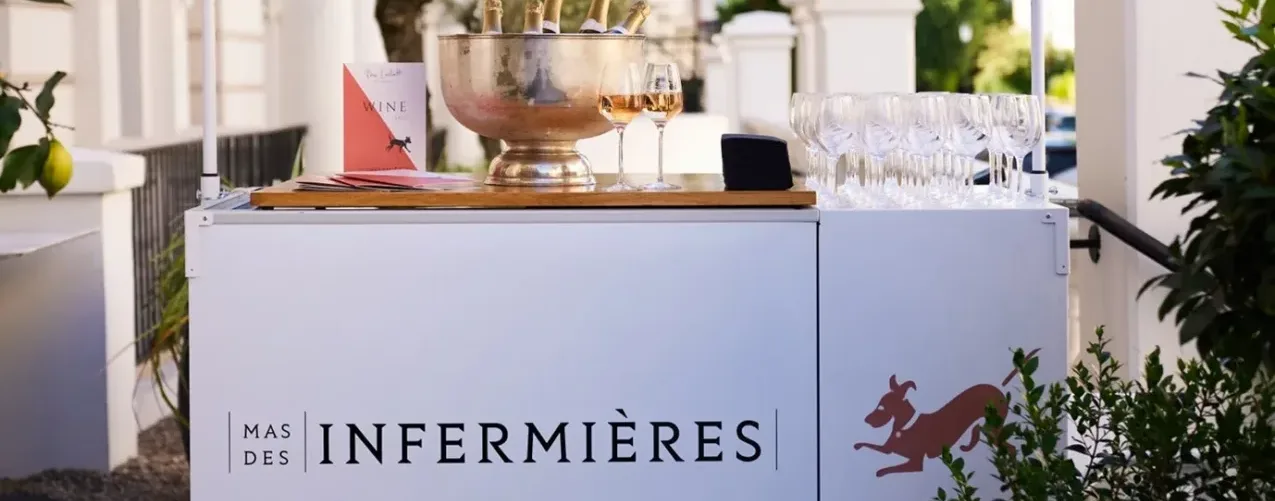

Show Comments +